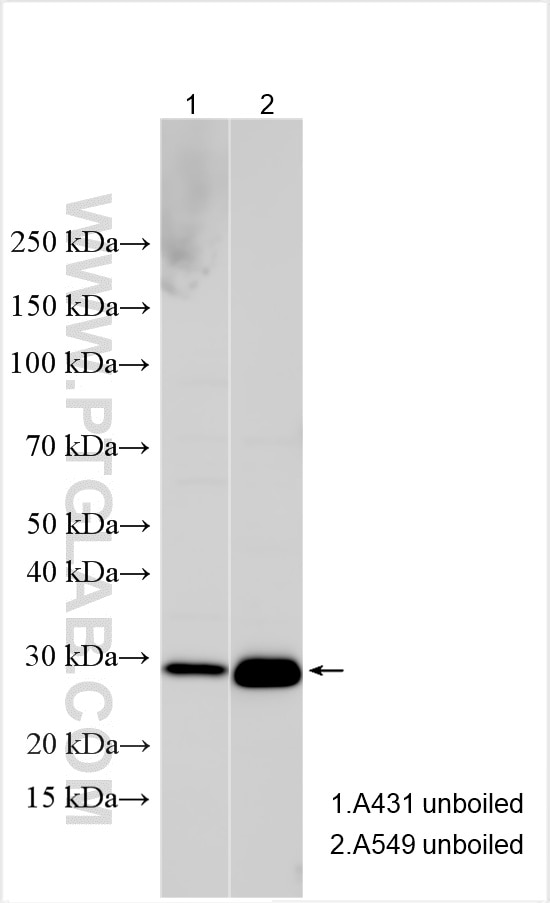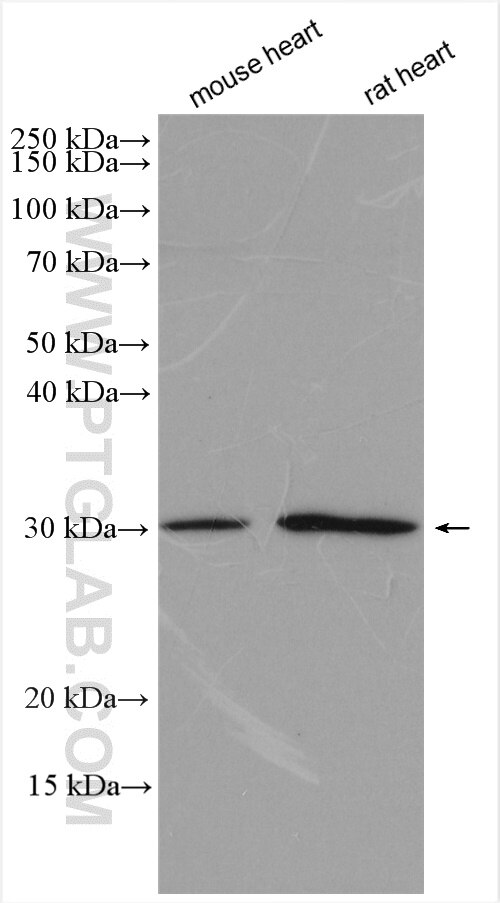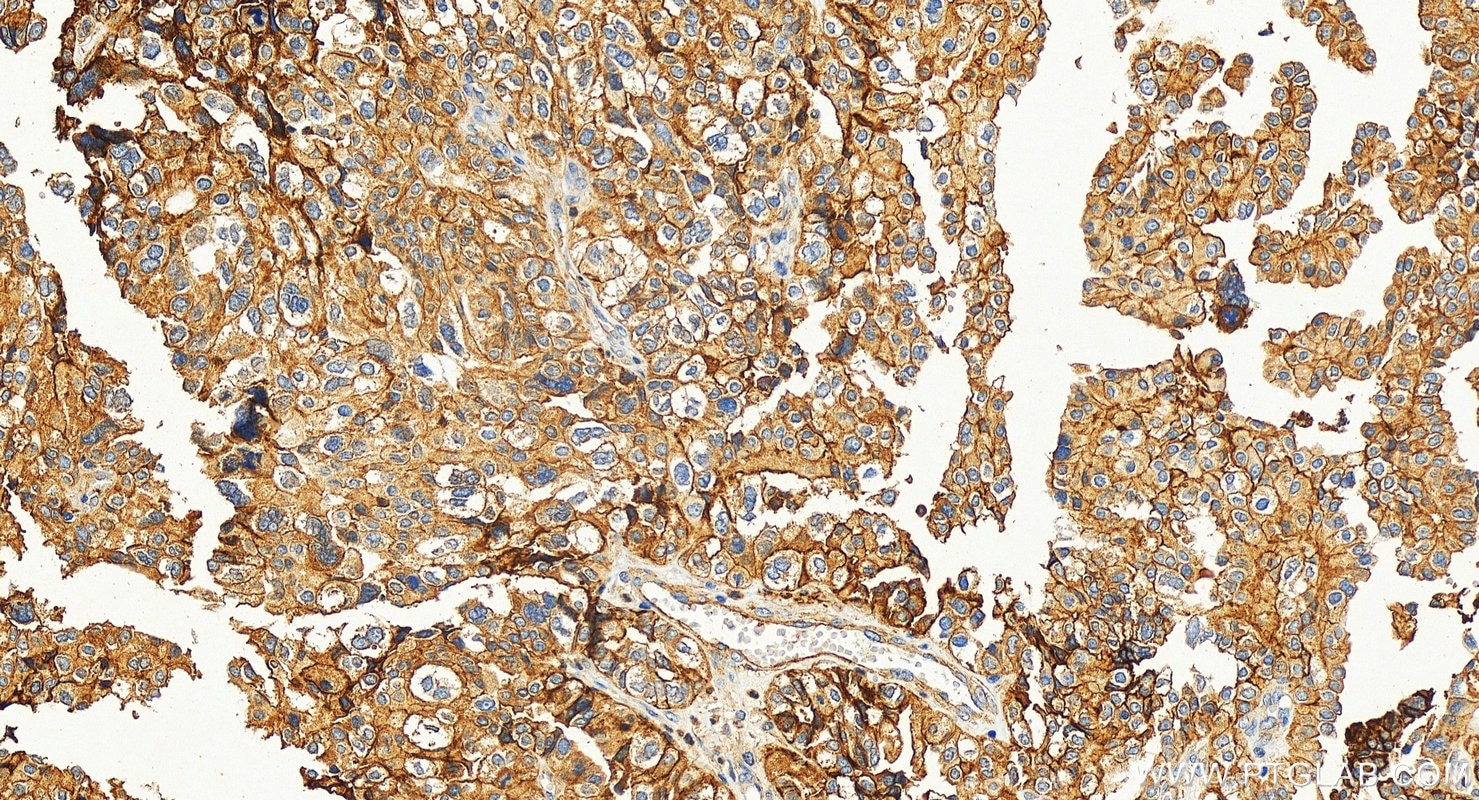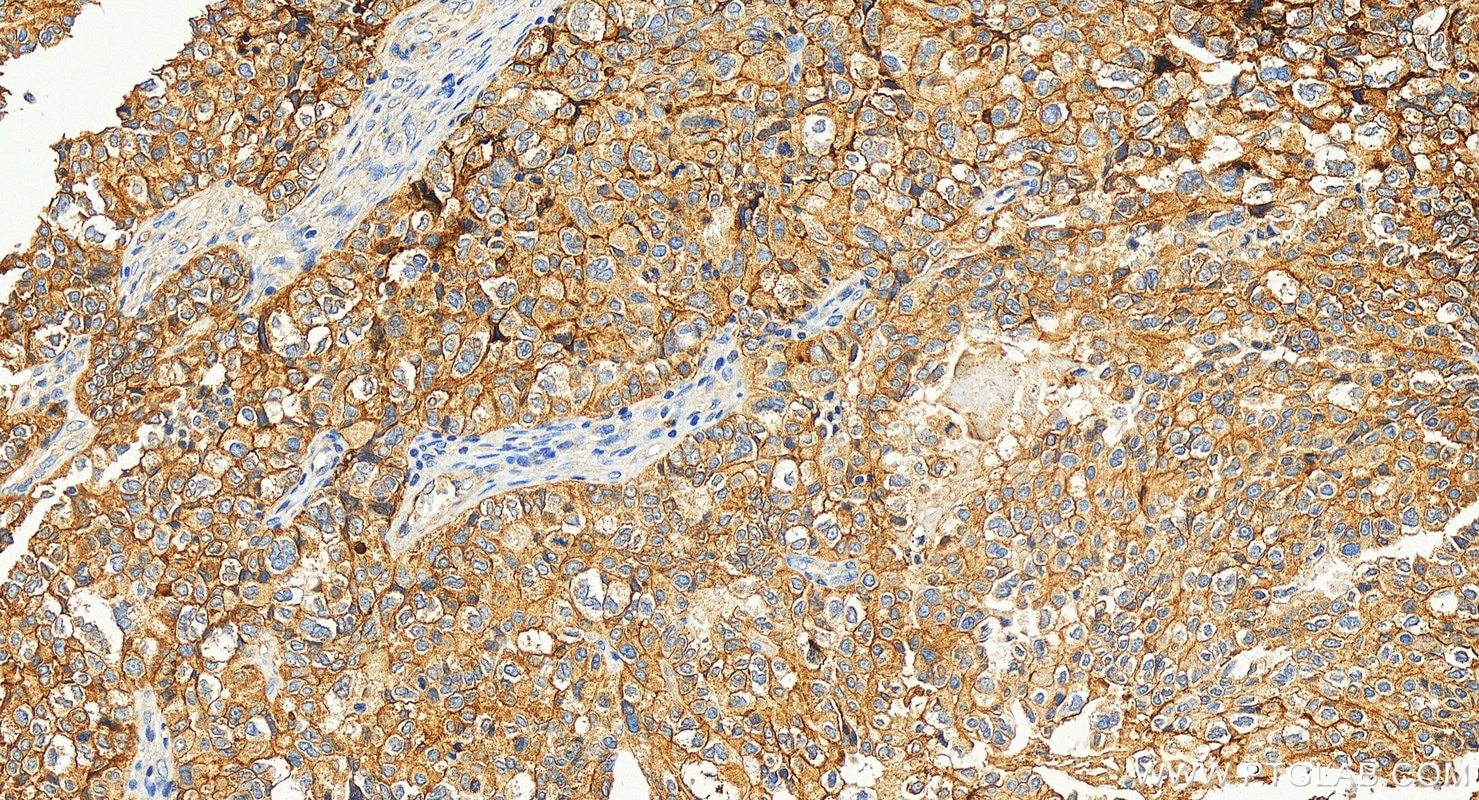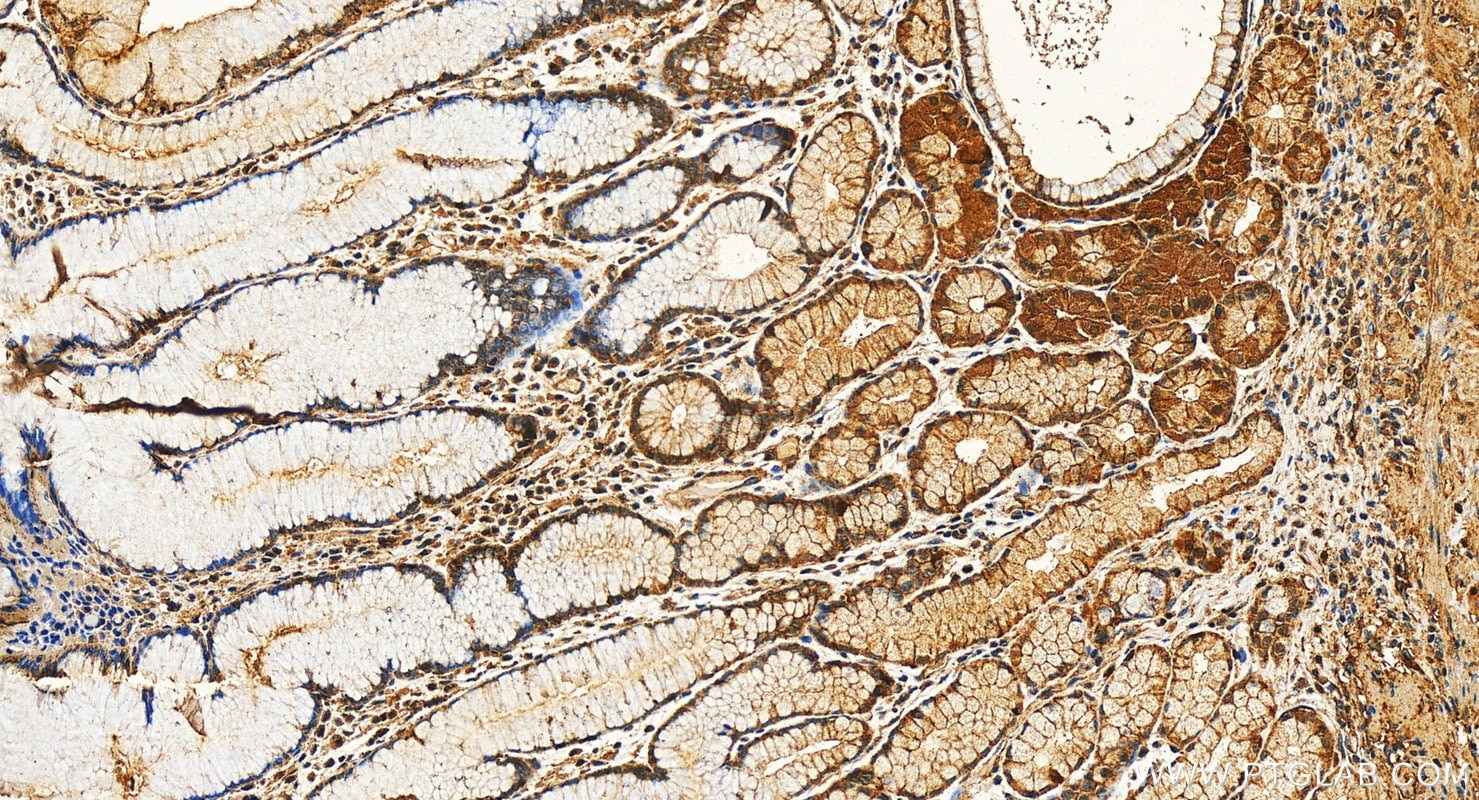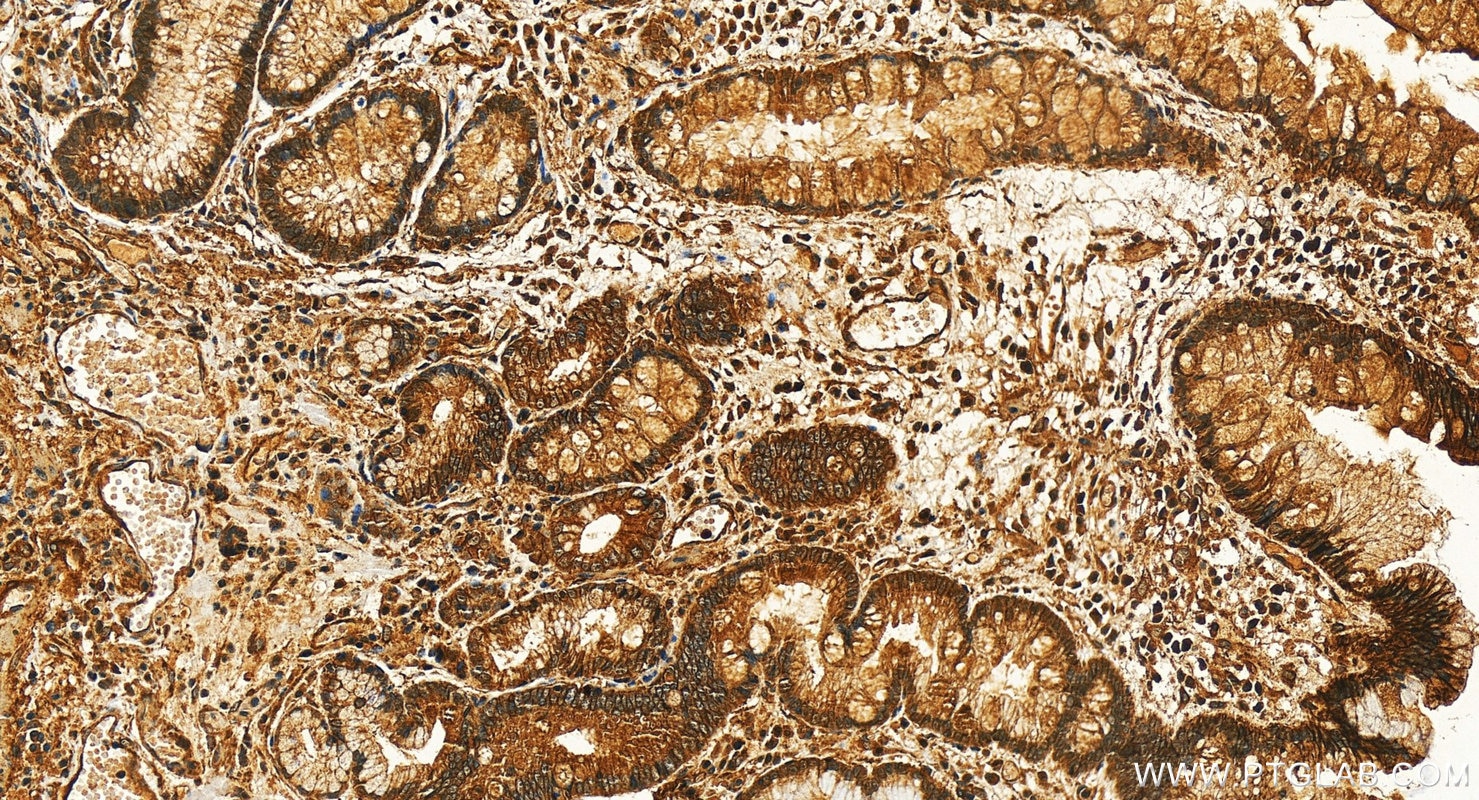Tested Applications
| Positive WB detected in | unboiled A431 cells, mouse heart tissue, unboiled A549 cells, rat heart tissue |
| Positive IHC detected in | human ovary tumor tissue, human stomach cancer tissue Note: suggested antigen retrieval with TE buffer pH 9.0; (*) Alternatively, antigen retrieval may be performed with citrate buffer pH 6.0 |
Recommended dilution
| Application | Dilution |
|---|---|
| Western Blot (WB) | WB : 1:1000-1:8000 |
| Immunohistochemistry (IHC) | IHC : 1:500-1:2000 |
| It is recommended that this reagent should be titrated in each testing system to obtain optimal results. | |
| Sample-dependent, Check data in validation data gallery. | |
Published Applications
| WB | See 1 publications below |
| IHC | See 1 publications below |
Product Information
27816-1-AP targets CD151 in WB, IHC, ELISA applications and shows reactivity with human, mouse, rat samples.
| Tested Reactivity | human, mouse, rat |
| Cited Reactivity | human |
| Host / Isotype | Rabbit / IgG |
| Class | Polyclonal |
| Type | Antibody |
| Immunogen | CD151 fusion protein Ag25968 Predict reactive species |
| Full Name | CD151 molecule (Raph blood group) |
| Calculated Molecular Weight | 28 kDa |
| Observed Molecular Weight | 30 kDa |
| GenBank Accession Number | BC001374 |
| Gene Symbol | CD151 |
| Gene ID (NCBI) | 977 |
| RRID | AB_2923579 |
| Conjugate | Unconjugated |
| Form | Liquid |
| Purification Method | Antigen affinity purification |
| UNIPROT ID | P48509 |
| Storage Buffer | PBS with 0.02% sodium azide and 50% glycerol, pH 7.3. |
| Storage Conditions | Store at -20°C. Stable for one year after shipment. Aliquoting is unnecessary for -20oC storage. 20ul sizes contain 0.1% BSA. |
Background Information
CD151 (also known as TSPAN24) is a membrane protein of the tetraspanin superfamily, which are characterized by the presence of four conserved transmembrane regions. Many of these members are involved in the regulation of cell development, activation, growth and motility. CD151 is broadly expressed by a variety of cell types. It is involved in cellular processes including cell adhesion and may regulate integrin trafficking and/or function. CD151 enhances cell motility, invasion and metastasis of cancer cells.
Protocols
| Product Specific Protocols | |
|---|---|
| WB protocol for CD151 antibody 27816-1-AP | Download protocol |
| IHC protocol for CD151 antibody 27816-1-AP | Download protocol |
| Standard Protocols | |
|---|---|
| Click here to view our Standard Protocols |
